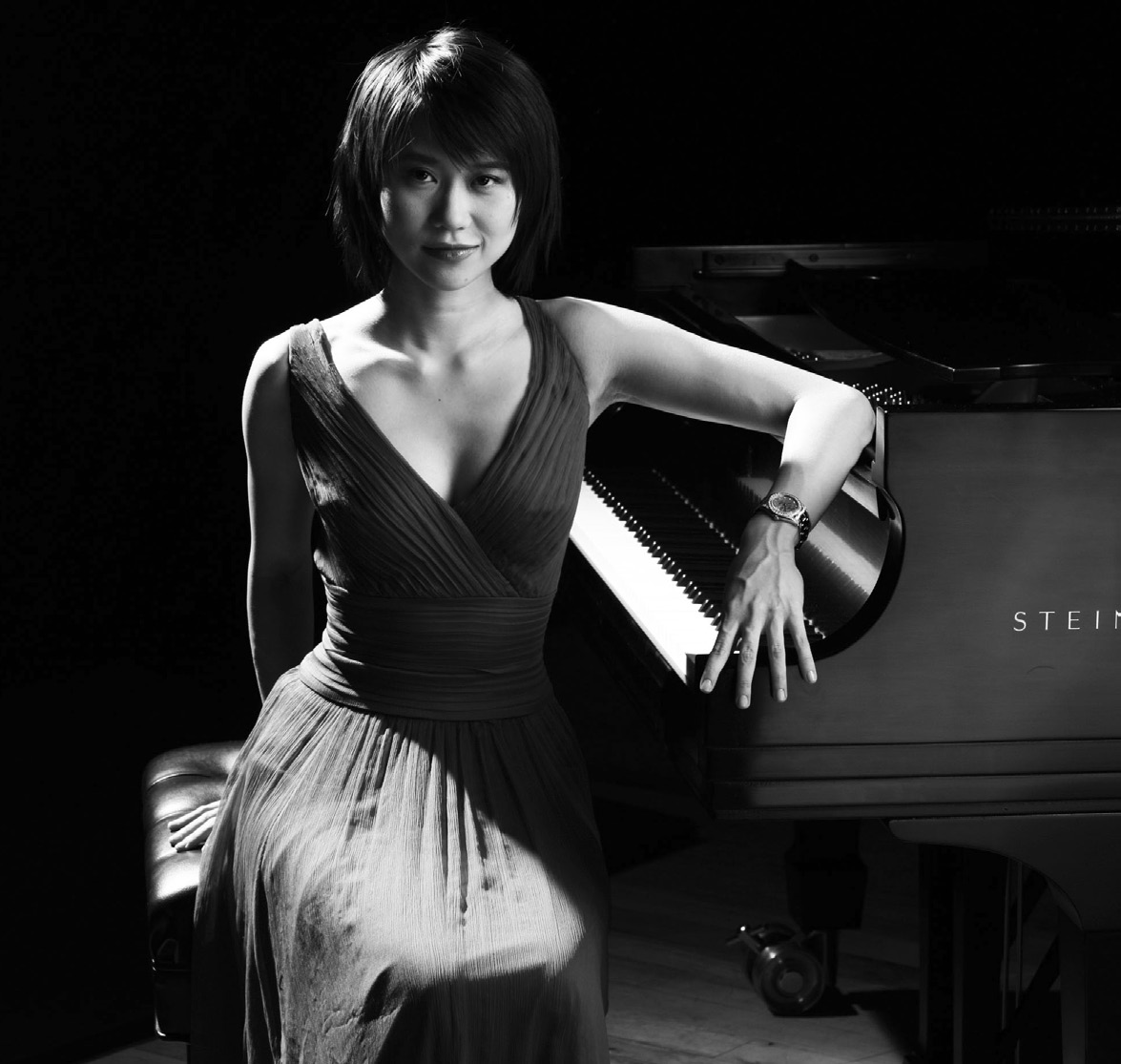

Jacobs Masterwork Series
April 7-8
John Corigliano’s percussion concerto, “Conjurer,” with Dame Evelyn Glennie
7:30 p.m.
Sunday, April 10, 2 p.m.
(Also on the bill are Liszt’s Les Preludes and Beethoven’s Second Symphony)
May 6
8 p.m.
Yuja Wang
By Jeff Britton | SDUN Reporter
Composer John Corigliano recalls that when he was asked to compose a percussion concerto, his only reaction was horror. While he loved using a percussion battery in his orchestral works, he said, the very thing that makes it accent other orchestral sounds perfectly made it unsatisfactory as the spotlight in a concerto.
Luckily, Corigliano, winner of the Grawemeyer Award for his Symphony No. 1 (inspired by the AIDS pandemic) and the Pulitzer Prize for his Symphony No. 2, wasn’t deterred, and classical music lovers will have the opportunity to mix up their usual Bach, Beethoven and Brahms with the local premiere of his daring and unusual percussion concerto, featuring esteemed British percussionist Dame Evelyn Glennie, this April 7-10, at the Jacobs Masterwork series.
Percussionists play dozens of instruments, many of which have little or no pitch and don’t sustain a sound like a violin or trumpet. Until the brash, Italian-American Corigliano composed “Conjurer” in 2007, most percussion concerti deferred the melody to the orchestra, while the percussion did figures around it. But Corigliano wrote a concerto for a solo percussionist playing many instruments, in which there are real melodies introduced by the percussion, not the orchestra. The result is a three-movement concerto broken down into Wood, Metal and Skin.
In Wood, he supplemented the pitched xylophone and marimba with unpitched instruments such as wood block, claves, log drum, etc., ranging from high to low and placed in front of the marimba. A cadenza for chimes (tubular bells) accompanied by tam-tams and suspended cymbals marks the Metal movement, with the melody introduced in the low register of the vibraphone.
The Skin cadenza features a “talking drum” accompanied by a kick drum, the former played with the hands and changing pitch as its sides are squeezed. Thus ensues a lively conversation with the kick drum, a very dry, small bass drum played with a foot pedal. It all culminates with the orchestra and soloist playing a savage rhythmic figure that accelerates to a blinding speed.
The work gets its title, “Conjurer,” from the fact that the soloist doesn’t so much as introduce material as conjure it, as if by magic.
The Jacobs Masterwork Series will also, in May, feature the rarely heard Prokofiev Piano Concerto No. 3, featuring 23-year-old Chinese pianist Yuja Wang making her San Diego debut—an auspicious one indeed. After hearing her extraordinary performance of the dastardly difficult Prokofiev No. 2 Concerto with the LA Philharmonic two years ago at Walt Disney Hall, I was smitten by Wang’s amazing prowess. Charles Dutoit, conductor emeritus of the Montreal Symphony was guest conductor, and it seems the Canadians have introduced her to North America.
She made her debut with Pinchas Zukerman and the National Arts Centre Orchestra in Ottawa; Dutoit became her mentor, and the Canadian press gushed, “A star is born.” Every bit as good as her more famous countryman Lang Lang, best known for the opening ceremonies of the Beijing Olympics and three sold-out concerts in January in San Diego, Wang is refreshingly shy and unassuming.
After hearing her several times with the San Francisco Symphony, the San Francisco Chronicle’s Joshua Kosman said, “The only problem with the tremendous artistry of Yuja Wang is figuring out how to get enough of it. One concerto’s worth of her dazzling keyboard technique and crisp interpretive personality only whets a listener’s appetite for more.” I couldn’t agree with him more.
A graduate of Curtis Institute in Philadelphia, Wang has appeared with all the major orchestras worldwide: Amsterdam, Madrid, Tokyo, Munich, Milan, Valencia, Zurich, Pittsburgh, Cincinnati, and of course Shanghai and Beijing, to name just a few.
Wang’s embrace of all three of the Prokofiev concerti as well as the three by Rachmaninoff indicates that this is a performer who never takes the easy way out. Just days after her San Diego concerts, she will play the same concerto with the Berlin Staatskapelle. Don’t miss this amazing talent. For tickets and information, call (619) 235-0804, or visit: sandiegosymphony.com.












Discussion about this post